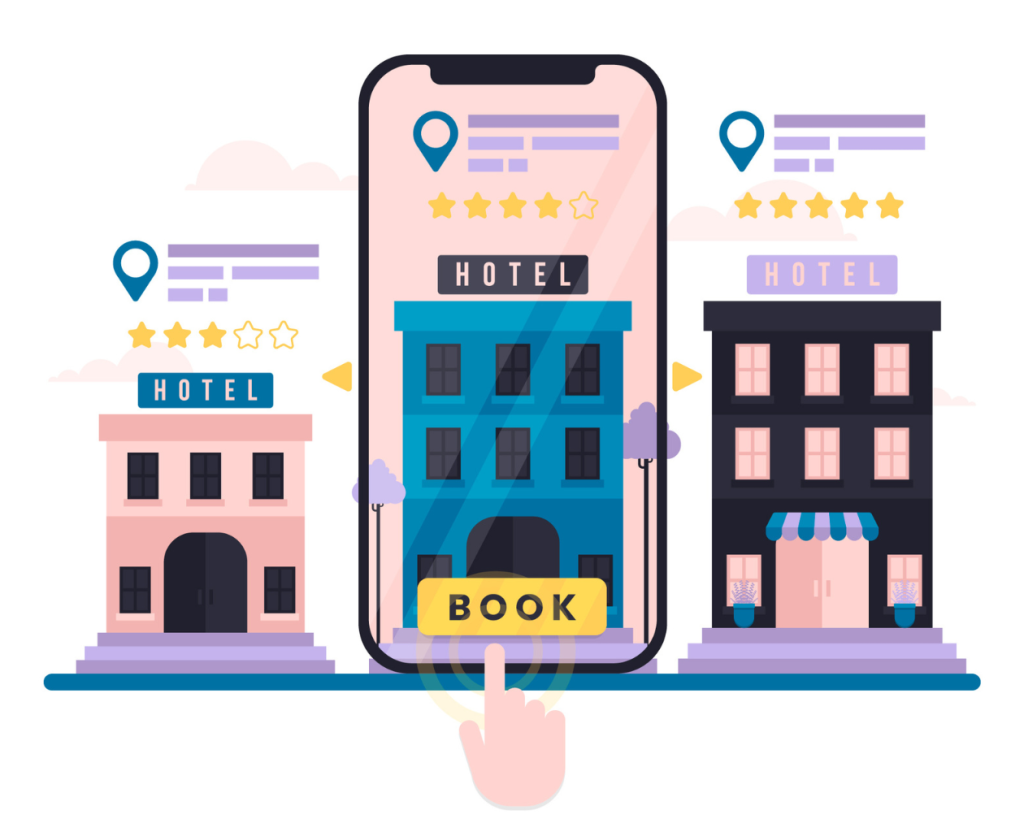In today’s highly competitive hospitality industry, hotels must have effective marketing strategies in place to increase bookings and revenue. While providing excellent service is essential, it is not sufficient to attract and retain customers. Hoteliers must use effective marketing techniques to differentiate their brand from competitors. In this article, we’ll go over some of the best hotel marketing strategies for increasing bookings and revenue.
Quick Links
Create a Compelling Website
A hotel’s website is an essential tool because it is frequently the first point of contact with potential guests. A captivating website can assist hotels in establishing their brand identity and attracting more bookings. It is critical to have an aesthetically pleasing and user-friendly website that highlights the hotel’s amenities, location, and other key selling points. As more people use their smartphones and tablets to book hotels, a responsive website that is optimized for mobile devices is also essential. Furthermore, hotels should provide detailed information on room types and rates, as well as any special packages or promotions that may be available. It is also critical to have clear and visible calls to action (CTAs) that encourage visitors to book directly on the website.
Utilize Social Media
Hotels can use social media platforms to reach out to potential guests and showcase their brand identity. Hotels can connect with their target audience and promote their services in a more engaging and interactive way by establishing a strong social media presence. For hotels, Instagram, for example, is an excellent platform for showcasing their amenities and attractions through visually appealing photos and videos. Facebook and Twitter, on the other hand, are excellent for interacting with visitors and responding to their questions and feedback. Hotels can build a strong community of followers and advocates by sharing relevant and engaging content, responding to comments and messages, and running social media campaigns.
Implement the Right Software
Hotels must have efficient booking software because it simplifies the booking process for guests and saves time for hotel staff. An easy-to-use booking engine on the hotel’s website can assist guests in finding and booking rooms quickly and easily, while also allowing them to select from a variety of room types and rates. Moreover, booking software that integrates with the hotel’s property management system (PMS) can assist in automating tasks like check-in and check-out, room assignment, and payment processing. The right software can provide valuable data and insights to hotels as well. Hotels can optimize their pricing strategies and revenue management by tracking booking trends, occupancy rates, and revenue streams.
Offer Personalized Experiences
Personalization is a hot topic in the hospitality industry, and hotels that provide personalized experiences are more likely to attract and retain customers. Hotels can tailor their services to meet their guests’ specific needs by collecting data on their preferences and interests. Hotels, for example, can provide personalized room amenities, welcome messages, and even personalized recommendations for local attractions and restaurants. Not only does this make guests feel valued and appreciated, but it also improves their overall experience. Various touchpoints, such as booking forms, loyalty programs, and guest surveys, can be used by hotels to collect guest data. Hotels can create guest profiles and tailor their services based on this data by analyzing it.
Leverage Online Travel Agencies
Travelers looking for the best deals and discounts frequently use online travel agencies (OTAs) such as Booking.com and Expedia. Hotels can reach a larger audience and increase bookings by listing their property on OTAs. It is important to note, however, that OTAs charge a commission fee for each booking, which can eat into hotel profits. Hotels should try to drive direct bookings through their website by offering incentives such as exclusive deals and loyalty programs to mitigate this. Hotels should carefully weigh the benefits and drawbacks of listing on OTAs, as this can affect their profitability and brand reputation. Hotels can negotiate better rates or offer exclusive deals to direct bookers to reduce the commission fees charged by OTAs.
Encourage Guest Reviews
Guest reviews are important in the hospitality industry because they can influence other travelers’ decisions to book a specific hotel. Hotels should encourage their customers to leave reviews on sites like TripAdvisor and Google Reviews. Positive reviews can help the hotel’s reputation and attract more bookings, whereas negative reviews can provide useful feedback for future improvements. Hotels must respond to all reviews, positive or negative, and address any issues or concerns raised by guests. Hotels can actively encourage guests to leave reviews by sending post-stay surveys, displaying review widgets on their websites, or providing incentives like discounts or loyalty points.
To stay ahead of the competition in the hospitality industry, hotels must keep up with the latest marketing trends. Hotels can increase their bookings and revenue, as well as their chances of success, by following the advice provided.

